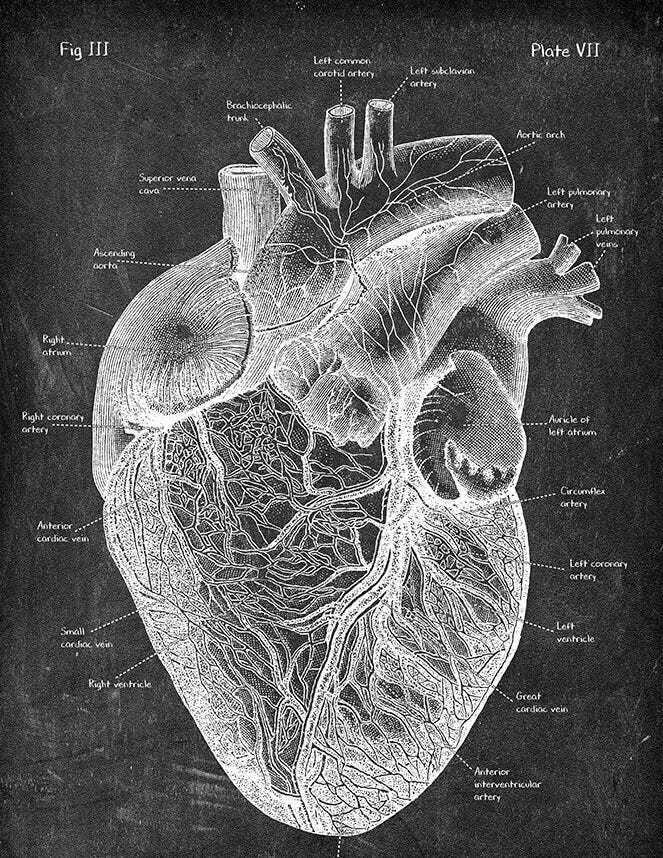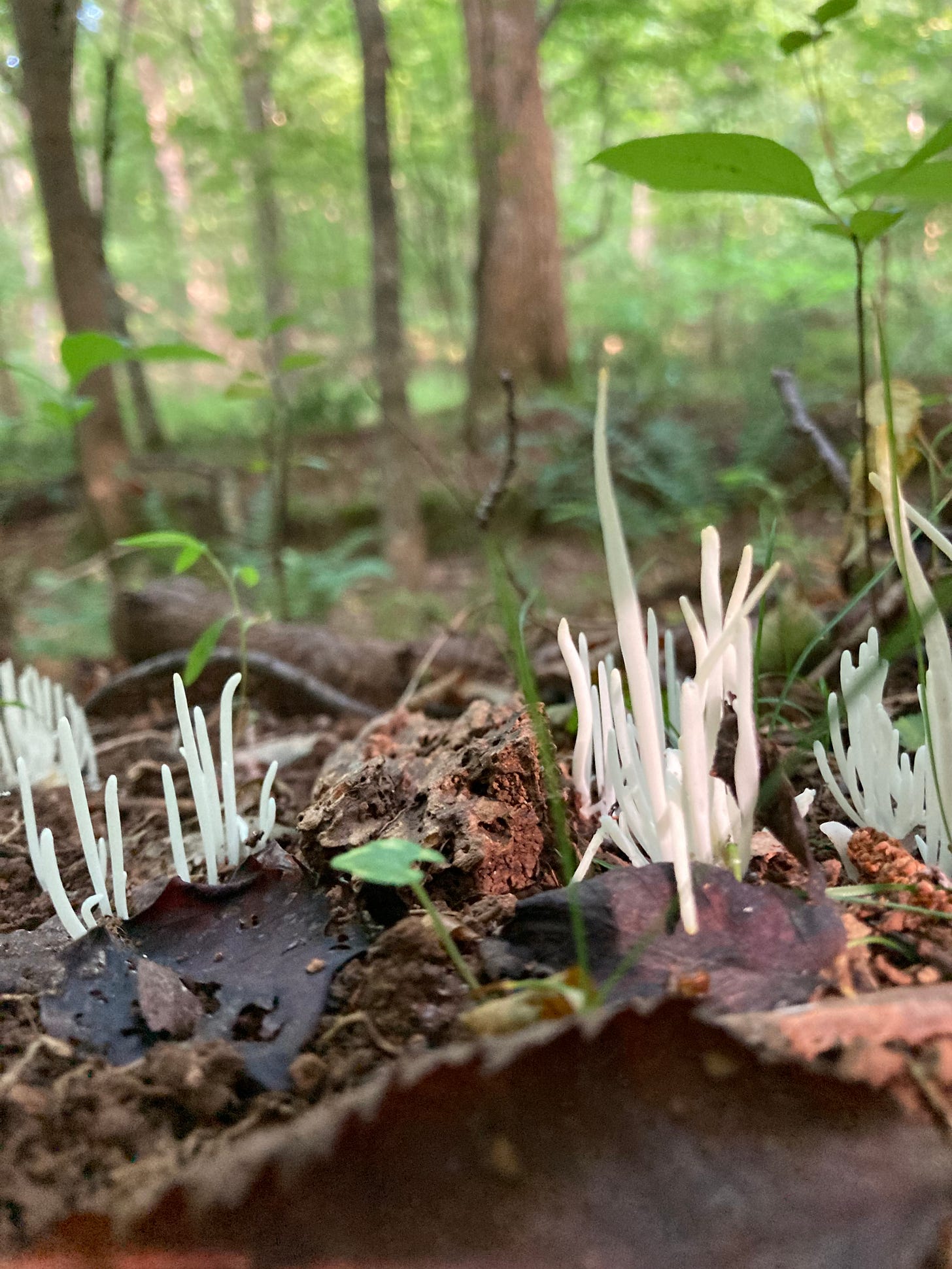Poets ask us to do the most beautiful errands.
In his radiant poem “Six”
requests:Go find me something that takes exactly a second
I think of a heartbeat.
My answer comes from having spent many hours of my younger years as an R.N. keeping watch at the bedside of my ICU patients.
From 7PM to 7AM, I would study the continuous neon-green movement of waves flowing across a dark screen at the head of the bed. I analyzed my patient’s heart rate, rhythm and qualities, blood pressure, pulmonary arterial pressure, central venous pressure, and saturation of oxygen. Once an hour (or as needed) I would measure my patient’s cardiac output, in liters per minute, through the clever trick of injecting 10ccs of icy cold saline into a closed-system catheter inside the heart.
A resting human heart pumps about six liters of blood per minute—if one is fortunate to have a well-functioning pump. Not all of my patients did.
Night after night, I recorded the body’s internal electricity as it made tracings and music on the cardiac monitor. I would become, subconsciously, so tuned-in to the particular rhythms of my assigned patient, that a single irregular beat would cause me to pause mid-task and analyze the nature of the event. Did it require immediate intervention or was it mere artifact? Over time, I got better at telling the difference.
With a stable patient, the monitor’s soothing beep-beep-beep was the soundtrack to a peaceful shift. But 4:00 a.m. was the most difficult hour to stay awake. The body naturally wants to sleep at that time, yet ICU nurses need to stay alert and prepared to respond to any emergency. We also had to be sharp enough to give a detailed report to the oncoming dayshift crew of physicians and nurses. As an energy-boost, on our 15 minute break, some of us would take turns climbing the hospital stairs—10 flights, a couple of times up and down—just to get our own hearts pumping.
Other nights, the demands of an unstable patient kept me in a steady adrenaline rush of injecting drugs, titrating various IV drips to the patient’s hemodynamic needs, monitoring bleeding, and giving blood transfusions. I had to make frequent calls to update the surgical resident down the hall, who was desperately trying to gulp sleep the way a drowning person might gulp air. These nights felt like time folded upon itself in a concentrated and invisible way.
Occasionally, we lost the battle for a patient’s life. Sometimes the patient was a young child born with a cardiac defect, or a teenager who had been in an accident, or an elderly soul who had a bewildered spouse of many decades at their bedside. After all was done, and the body was taken to the morgue, I would sometimes slip into the bathroom, close the door, and cry.
If you’ve ever worked “the graveyard shift” you know that living an upside-down, nocturnal life can be very weird and exhausting—even for a vigorous young person. At the end of each shift, I would walk out of the hospital and into the morning sun; I felt spent but very much alive in contrast to the dark specter of death, whom I had wrestled with all night.
After 12 hours of listening to all those beautiful heartbeats and shrill warning alarms, I would drive home in total silence.
Witnessing so much illness and death in my younger years has made me very grateful to be healthy and able to live close to nature today. I tell you this as a way to let myself be known a bit more by you, dear Reader, and to show you a little more of the person who cherishes her “alive time” in the peace, fresh air, and beauty of the forest.
For me, the heart of the Microseasons is intimacy.
It is a practice of truly seeing an ecosystem—and being seen by its inhabitants—in this moment, on this day, which rests inside a very small window of time. And as we know, the human body is a temporary container.
Time is a mystery, a construct, a myth and a science.
Human life is spiral, complete in a way, yet—I believe—never finished. Where are you now on the spiral of your life?
Is time in nature something that’s life-giving for you? I would love to know.
Meanwhile, I’ll see you in a new microseason,
xo Ann






As someone who had a mitral valve repair two years ago I am in awe of ICU nurses. Thank you, Ann for this reflective piece of writing and for your service as a nurse.
The operation was a profound experience for me and certainly made me even more aware of taking advantage of the time I have remaining in this world. Being in, and celebrating Nature is a big part of this.
I’ve never thought of life as a spiral, so that’s a thought-provoking idea. I would say that the spiral for me starts in the centre and becomes wider throughout life, until at death it has expanded to a point where it becomes indistinguishable as a spiral and is absorbed into all that is. Like in this quote from Mr g, by Alan Lightman.
“And the individual atoms, cycled through her body and then cycled through wind and water and soil, cycled through generations and generations of living creatures and minds, will repeat and connect and make a whole out of parts.
Released from their temporary confinement, her atoms slowly spread out and diffused through the atmosphere.”
An interesting post Ann and has given me pause to think about those questions you posed. In the spiral of life (up or down?) I'm just 5 seasons past the mid-century mark. Spending time in Nature is absolutely life-giving for me. It's my spiritual and mental sustenance. I look forward to the changing of seasons as well - especially as we have not passed mid-August and ease into later Summer and transition to Autumn. That for me is my favourite macro season. Thanks for sharing.